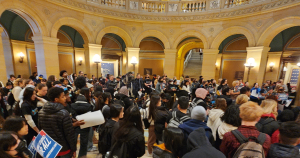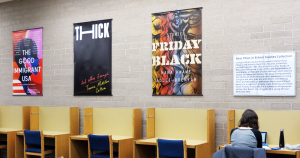
Minnesota recently finished revising its K-12 Social Studies Academic Standards—a once in a decade opportunity to scrutinize and revise what students learn in social studies.
The new social studies standards are inclusive of more lenses, narratives, and histories—and honest about both the achievements and atrocities that mark our nation’s story. In other words: the standards are more firmly rooted in equity.
EE’s policy director served on the 38-person review committee along with other parents, educators, and community leaders, and was involved in supporting the standards throughout the formal rule making process that followed. The final, revised standards were signed into rule in March 2024 and will go into effect during the 2026-27 school year.
Minnesota’s new social studies standards mark truly historic progress.
Through the new standards, more students will find relevance in what they’re learning, feel recognized for who they are and what they bring to their community, build skills for an increasingly globalized world, and develop a patriotic commitment to advancing the American promises of liberty and justice.
Some of our specific goals—all of which were met—were that the new standards:
- Are student-centered and relevant to students’ lived experiences
- Include ethnic studies and the histories, cultures, and lenses of historically marginalized groups
- Depart from a European-American lens as the “default,” and suggest texts and curriculum by diverse authors
- Teach about history and the current role of race, racism, and anti-racist work
- Ultimately, prepare students to become informed and active citizens who see and and challenge injustice in society



